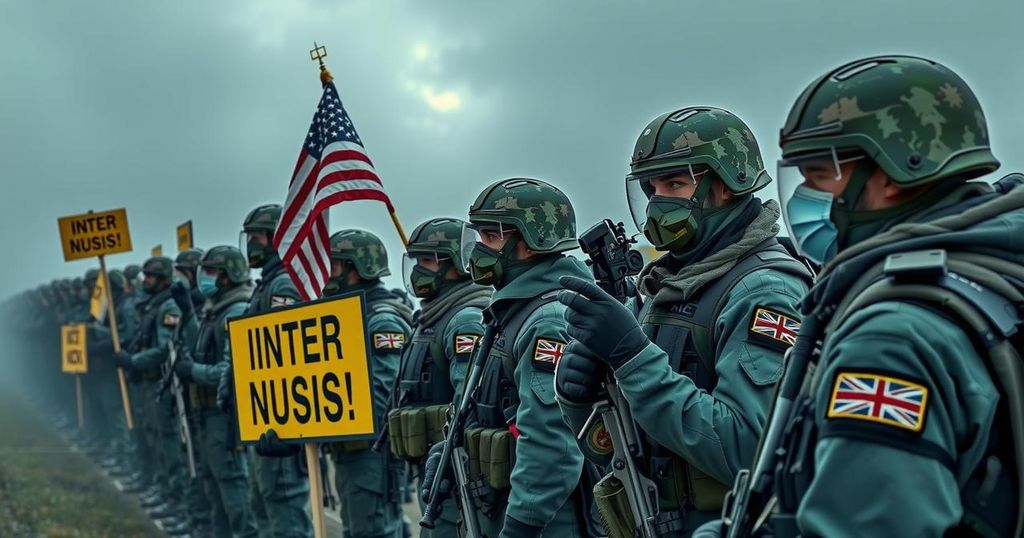At COP29, activists called for integrating climate justice with anti-genocide efforts during the People’s Plenary titled “Pay Up, Stand Up: Finance Climate Action, Not Genocide.” They protested against complicity in militarism, particularly regarding Palestine and Sudan, while underscoring the need to treat climate financing as reparations. The gathering highlighted the connection between ecological degradation caused by conflict and the urgency of addressing injustices associated with both climate action and genocide.
At COP29 in Baku, Azerbaijan, a significant civil society gathering took place, showcasing the intersection of climate justice and global conflicts. Dubbed the People’s Plenary titled “Pay Up, Stand Up: Finance Climate Action, Not Genocide,” participants emphasized the urgency of addressing genocidal actions intertwined with ecological degradation. Activists unfurled the names of Palestinians killed due to military aggression, thereby highlighting the broader impacts of militarism on climate crises. Lidy Nacpil, co-chair and Filipina activist, articulated that despite constraints placed on protests, the gathering celebrated marginalized voices advocating for climate justice alongside the fight against genocide. Palestinian advocate Jana Rashed and Sudanese activist Leena Eisa further underscored the need for global powers to halt their complicity in genocidal actions, stressing the contamination of environments due to ongoing conflicts, which ultimately exacerbate the climate emergency. Their collective appeal calls on nations to cease contributing to violence and ecological devastation, framing climate justice as an integral component of global justice.
The context surrounding COP29 highlights the critical need to connect climate action with issues of militarism and genocide. With increasing militarization and environmental degradation occurring in conflict zones such as Palestine and Sudan, civil society activists seek to open dialogue regarding the responsibility of nations that continue to contribute to such violence. The necessity for climate finance, particularly as reparations for climate debt owed to vulnerable populations, forms the core of discussions among climate advocates. This gathering illustrates the growing realization that fighting for climate justice is inseparable from fighting against systemic inequities and violence throughout the globe.
In conclusion, the voices raised at COP29 illuminate the critical intersection of climate justice and the fight against genocide. Activists, gathered in solidarity, seek to compel nations to acknowledge their roles in both environmental destruction and humanitarian crises. Efforts to link climate action with broader issues of social justice underscore the urgent need for comprehensive strategies that address ecological, political, and ethical dimensions of global crises. The future of climate initiatives must therefore include advocacy against militaristic practices that perpetuate violence and ecological harm.
Original Source: www.democracynow.org






